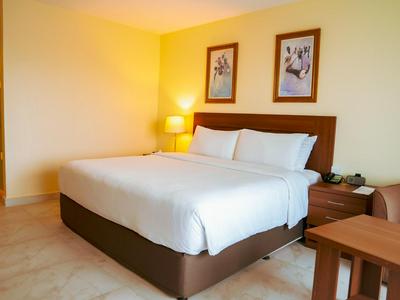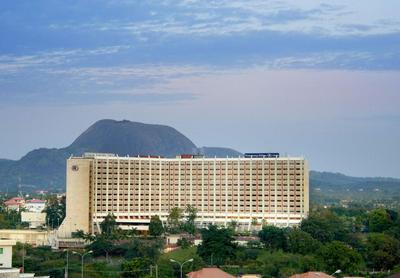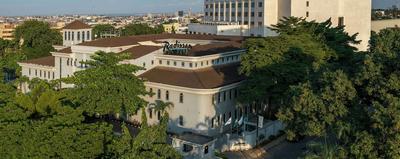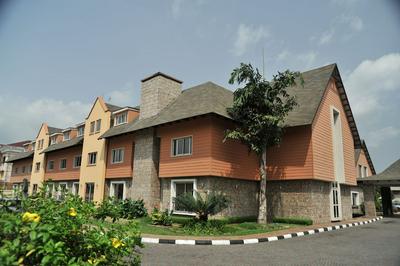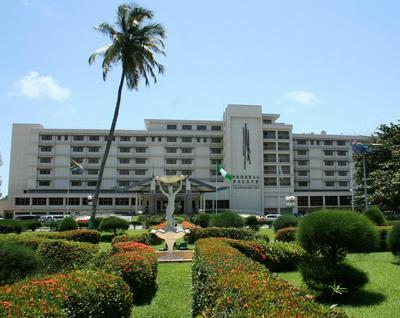When to visit Nigeria during the year?
Nigeria experiences a tropical climate, with varied weather patterns across its diverse regions. The best time to visit is generally during the dry season from November to March. During this period, especially in December and January, travelers enjoy pleasant temperatures and low humidity levels. Popular destinations like Lagos and Abuja see a surge in tourists during this time, as festivals and cultural events abound. In contrast, the rainy season runs from April to October, with the heaviest rains occurring between June and September. Travelers keen on exploring the natural wonders, like the Obudu Mountain Resort, may find lush landscapes in the wet season, though accessibility can be compromised.
How to get to Nigeria?
Nigeria is well-connected to the rest of the world, with various transport options available. The country’s major international gateway is Nnamdi Azikiwe International Airport in Abuja and Murtala Muhammed International Airport in Lagos. Numerous airlines operate flights from all continents, allowing easy access to Nigeria's bustling cities. For those within West Africa, several bus services and regional flights make travel convenient. Here’s a breakdown of transportation options:
- Main airports include Murtala Muhammed International Airport in Lagos and Nnamdi Azikiwe International Airport in Abuja. Major airlines from Europe, North America, Asia, Australia, and Africa serve these airports.
- Low-cost airlines such as Air Peace offer domestic routes at competitive prices.
- Flight times vary; for example, it takes about 6-7 hours from London, 12-14 hours from New York, and 8-10 hours from Dubai.
- Main bus stations are located in major cities like Lagos, Abuja, and Port Harcourt.
- Buses connect cities like Lagos to Ibadan and Abuja, often taking 8-10 hours depending on traffic.
- There are limited train services, primarily connecting major cities like Lagos and Kano.
- Expect travel times of approximately 12 hours for intercity routes.
- Main highways include the Lagos-Ibadan Expressway and the Abuja-Kaduna Road.
- Distances vary; Lagos to Abuja is about 760 km (approximately 9-11 hours drive).
- Some tolls are present, and road conditions can vary—check local advice for safe travel.
Tourist activities in Nigeria
Nigeria offers a rich tapestry of activities that cater to all interests, from culture and history to adventure and relaxation. Begin in Lagos, the country's vibrant economic hub, where you can explore the bustling markets, experience its nightlife, and enjoy the local cuisine. Don't miss the Nike Art Gallery for a taste of Nigerian artistry. For those drawn to history, a visit to the ancient city of Kano will reveal rich traditions and the famous Durbar Festival.
Nature enthusiasts can trek through Nigeria's stunning landscapes at places like the Obudu Mountain Resort or visit the beautiful Aso Rock in Abuja. Wildlife lovers should head to Yankari National Park, where you can spot diverse species in their natural habitat. For stunning beaches, the coastline of Lagos and the serene shores of Tarkwa Bay provide perfect relaxation spots.
Adventurers may want to explore the Olumo Rock in Abeokuta or embark on a riverboat cruise on the Niger River. Additionally, cultural festivals like the Osun-Osogbo Festival in Osogbo and the Eyo Festival in Lagos showcase the country’s rich traditions. No matter your preference, Nigeria has something exciting in store.
Accommodation in Nigeria
Nigeria boasts a wide range of accommodation options to suit visitors’ needs and budgets, from luxury hotels to cozy guesthouses. In major cities like Lagos and Abuja, luxury hotels such as Eko Hotel & Suites and Transcorp Hilton offer top-notch amenities and services, with prices ranging from $150 to $400 per night. For a more local experience, consider guesthouses or serviced apartments, which typically cost between $50 and $100 per night.
In tourist hotspots, like Calabar and Port Harcourt, boutique hotels and mid-range lodges can provide great comfort and unique experiences. Prices fluctuate according to seasonal demand, with peak times around the holidays seeing a rise in prices. For budget travelers, there are several hostels and affordable hotels with rates starting at $20 per night. Regardless of where you choose to stay, it's advisable to book in advance, especially during festivals and peak seasons.
Food in Nigeria
Nigerian cuisine is as diverse as its culture, featuring a variety of flavors and ingredients that reflect its rich heritage. Staple dishes like jollof rice, pounded yam with egusi soup, and suya (spicy grilled meat) are widely loved. A meal in a local eatery typically costs between $3 and $10, making it affordable to indulge in the rich flavors of the country.
For those interested in sampling traditional dishes, street food is a must-try—buns, pepper soup, and akara (bean cakes) can be found readily. Enjoy a refreshing zobo drink made from hibiscus flowers or palm wine, a local favorite. Restaurants and local spots across cities like Lagos, Abuja, and Port Harcourt provide authentic dining experiences, guaranteed to tantalize your taste buds.
Important numbers and information
- Emergency Services: Police - 112, Ambulance - 07087777777, Fire Brigade - 07012345678
- Embassy contacts: US Embassy Nigeria - +234 953 2000
- Main Airports: Murtala Muhammed International Airport, Lagos - Ikeja, Lagos, Nigeria
- Currency: Naira (NGN); payment methods include cash, credit/debit cards accepted in most urban areas.
- Visa/Passport regime: Visa required for most foreign visitors; check embassy regulations for specific requirements.
What to see in Nigeria?
Nigeria is rich in cultural, historical, and natural attractions that are not to be missed. Start with Lagos, known for its dynamic arts scene and beaches, such as Tarkwa Bay and Lekki Beach. Abuja, the capital, is home to the impressive Aso Rock and the Nigerian National Mosque, showcasing stunning architecture.
For history enthusiasts, the ancient city of Kano, with its well-preserved walls and markets, provides a glimpse into Nigeria’s historical depth. Don't overlook the beautiful landscapes of the Obudu Plateau and the picturesque Olumo Rock in Abeokuta.
Wildlife lovers should visit Yankari National Park, where you can enjoy hot springs and a chance to see elephants and baboons. Finally, explore the cultural richness at the Osun-Osogbo Sacred Grove, a UNESCO World Heritage Site. Each site offers a unique insight into Nigeria's diverse offerings, making them must-see destinations.
History, geography and climate
Nigeria's history dates back to ancient civilizations, with significant influences from the Nok culture, the Sokoto Caliphate, and British colonization. Gaining independence in 1960, it has since seen a variety of governance structures and cultural developments. The rich tapestry of ethnic groups adds to Nigeria’s colorful history, making it a country of fascinating stories.
Geographically, Nigeria is characterized by diverse landscapes, from the coastal plains in the south to the rolling hills and plateaus in the north. It is bordered by the Atlantic Ocean to the south and shares borders with Benin, Niger, Chad, and Cameroon. The climate varies across the regions; the north experiences a drier climate, while the south has a tropical climate with abundant rainfall. Average temperatures range from 25-35°C (77-95°F) throughout the year, but can soar in the northern regions during the dry season.
Population and culture
Nigeria is the most populous country in Africa, home to over 200 million people. A vibrant mixture of over 250 ethnic groups includes the Hausa, Yoruba, and Igbo. English is the official language, but numerous indigenous languages enrich the country’s cultural fabric.
Religion plays a vital role, with Islam and Christianity being the most practiced faiths, coexisting with traditional beliefs. Cultural traditions are prominently showcased through festivals, music, and art, reflecting the country's rich heritage. Festivals like the Eyo Festival, Osun-Osogbo Festival, and the Durbar Festival highlight Nigeria's diversity and communal spirit.
Nigeria's culture also features intricate art forms such as textiles, beadwork, and carvings, each with distinct cultural significance. This blend of tradition and modernity creates an exciting environment for visitors to explore.

